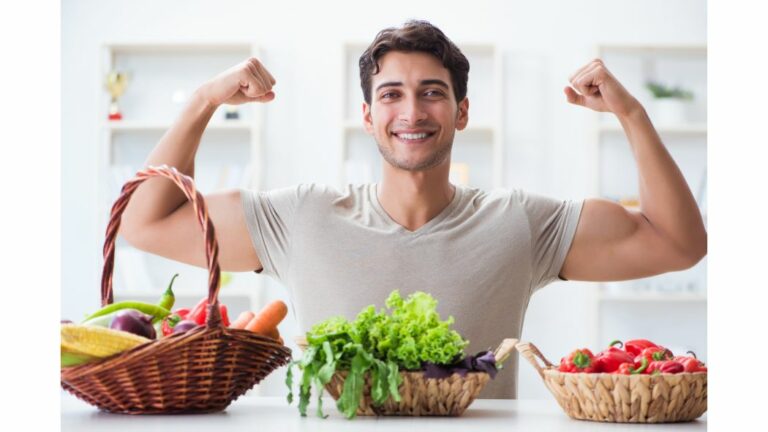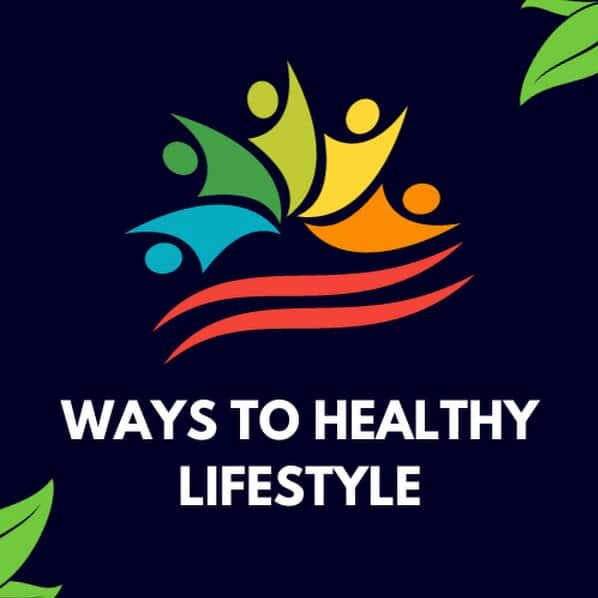Do you love sports and the outdoors but are also trying to maintain a vegetarian lifestyle? If so, you are not alone. According to a recent survey, over 7 million people in the United States identify as vegetarian athletes. In this article, we will explore the basics of the vegetarian atheletes diet and provide tips on how to ensure you are getting the right nutrition to sustain a healthy, active lifestyle.
So if you are a vegetarian athlete looking to get the most out of your diet, this is the article for you. Eating a balanced vegetarian diet can be a challenge, particularly for athletes — but it doesn’t have to be.
The Surprising Benefits of a Vegetarian Athletes Diet
Research has shown that a well-planned vegetarian diet can provide all the necessary nutrients for optimal athletic performance. By focusing on plant-based proteins, athletes can meet their protein needs while simultaneously reaping the benefits of a diet rich in vitamins, minerals, and antioxidants. These nutritional powerhouses contribute to increased endurance, enhanced recovery, and improved overall health.
Furthermore, vegetarianism has been shown to offer unique advantages in sports that require weight management. With a lower percentage of body fat, vegetarian athletes can enjoy better speed, agility, and flexibility, giving them a competitive edge on the field.
The benefits of a vegetarian diet extend beyond the physical realm. Athletes who adopt a plant-based lifestyle align themselves with the values of environmental sustainability and animal welfare. As a result, they not only enhance their own well-being but also contribute to the planet’s well-being..
The science behind vegetarianism and athletic performance is both compelling and enlightening. Numerous studies have shown that a plant-based diet can provide athletes with all the necessary nutrients, vitamins, and minerals to fuel their bodies and optimize performance. Contrary to popular belief, a well-planned vegetarian diet can adequately meet the dietary demands of even the most elite athletes.
Success Stories of Famous Vegetarian Athletes
A remarkable success story is that of Megan Rapinoe, a renowned American soccer player. Rapinoe has achieved immense success in the field after adopting a vegetarian diet in 2013. She has led the United States women’s national team to multiple victories, including the 2018 FIFA Women’s World Cup, as well as won prestigious awards such as the Ballon d’Or, making her one of the best female soccer players in the world.
Scott Jurek, a legendary ultramarathon runner, credits his plant-based diet with helping him succeed. Having won numerous ultramarathons, including the Western States 100-Mile Endurance Run, Jurek believes that his vegetarian lifestyle has enhanced his endurance and well-being.
Another inspiring example is Lewis Hamilton, the seven-time Formula One World Champion. Hamilton, a dedicated vegan, dominates the ultra-competitive world of motorsports, proving that plant-based nutrition can fuel high-intensity activities. Hamilton’s success not only showcases his exceptional driving skills but also highlights the potential of vegetarianism in demanding physical disciplines.
By embracing plant-based nutrition, these athletes have broken barriers and shattered stereotypes, proving that a vegetarian diet can provide the necessary nutrients and energy to excel in any sport. These incredible athletes dispel the common misconceptions surrounding vegetarianism and its impact on athletic performance.
Breaking the Myths about Vegetarian Atheletes Diet
One common misconception is that vegetarians lack sufficient protein intake to support muscle growth and maintenance. However, this belief is far from the truth. Vegetarian athletes, through careful meal planning and selection of plant-based protein sources such as legumes, tofu, tempeh, and seitan, are able to meet their protein requirements and build lean muscle mass.
Another prevailing myth is that vegetarian diets are low in essential nutrients like iron, calcium, and vitamin B12. However, vegetarian athletes can easily obtain these nutrients through strategic food choices and, if necessary, appropriate supplementation. Dark leafy greens, fortified plant-based milk alternatives, and nutritional yeast are just a few examples of how vegetarian athletes can meet their nutritional needs without relying on animal-based sources.
Balanced Vegetarian Diet for Atheletes
Eating a balanced meal that includes a combination of carbohydrates, protein, and healthy fats before and after workouts can provide the necessary fuel and support muscle recovery. A Vegetarian Atheletes diet should include Protein, Iron, Vitamin B12, Fiber, Carbohydrates, and Antioxidants. Let us see which foods can they eat.
1. Protein
Vegetarian athletes can obtain high-quality protein from plant-based sources such as:-
· Legumes
· Lentils
· Quinoa
· Tofu
· Beans
· Tempeh and
· Hemp Seeds
· Protein Shakes
· Nuts
2. Iron
Iron is like your blood’s very own personal Uber, transporting oxygen from your lungs to the rest of your body.If you don’t get enough iron, you may feel exhausted very soon. Luckily, there are ways to ensure you get your iron fill, even on a meat-free diet:
· Dark leafy greens
· Spinach
· Legumes
· Lentils
· Chickpeas
Pair iron-rich foods with vitamin C-rich ones to increase iron absorption. Orange juice with your iron-fortified cereal, anyone?
Soaking some legumes overnight can aid iron absorption.
3. Vitamin B12: The Brainy Boost Your Body Needs
Being deficient in Vitamin B12 is like waiving a massive white flag to fatigue and wavering concentration. Worse yet, your performance on the field can tank and leave you feeling like you’re running on fumes. But hey – keep your chin up, buttercup, because keeping your B12 levels robust sans meat is totally feasible.
· Some plant-based milk,
· Breakfast cereals, and
· Yeast extracts
If fortified foods aren’t your thing, consider taking a B12 supplement. Yes, it might be an ‘extra step’, but healthy has no shortcuts, my friend!
4. Carbohydrates
One key aspect of optimizing athletic performance on a vegetarian diet is ensuring a sufficient intake of carbohydrates. While some may associate carbs with processed foods, vegetarian athletes have a wide array of natural and wholesome options to choose from. Carbohydrates that are good for athletes are:-
· Quinoa,
· Watermelon
· Dates
· Brown rice, and
· Oats, along with fruits like bananas, apples, and berries,
5. Antioxidants
Another advantage of embracing the veggie secret is the abundance of antioxidants and phytochemicals found in fruits and vegetables. The anti-inflammatory properties of plant-based foods can help reduce exercise-induced inflammation and promote faster healing of muscle injuries.
Antioxidants:
· Reduces inflammation,
· Enhance immune function, and
· Promote overall health.
By incorporating a variety of colorful fruits and vegetables into their diet, vegetarian athletes can improve their recovery time and reduce the risk of injury. Foods that are rich in Antioxidants are:-
Broccoli,
Spinach,
Carrots and
Avocados,
Beetroot,
Lettuce,
Sweet potatoes,
Pumpkin and Kale
A vegetarian diet can be rich in antioxidants and phytochemicals, which are essential for reducing inflammation and promoting optimal recovery. High levels of antioxidants can help combat the oxidative stress caused by intense physical activity, supporting overall health and well-being.
6. Fiber
One of the main advantages of plant-based nutrition for athletes is its ability to enhance recovery. Foods like
Oats
Potatoes,
Oranges and
Brown rice
Fruits and Vegetables
Whole Grains
are fantastic sources of vital nutrients for athletes .The high fiber content in these foods aids in digestion and nutrient absorption, ensuring that athletes recover quickly and efficiently after intense training sessions or competitions.
Pre-workout and Post Workout Nutrition
1. Pre-workout Nutrition: Fueling for Optimal Performance
Below are some of the best vegetarian foods to have before a workout.
1. Carbohydrates
- Sweet potatoes
- Brown rice and white long-grain rice
- Pasta
- Oats and muesli
- Whole wheat bread,
- Some legumes such as chickpeas, red and green lentils, kidney beans, and black-eyed beans
2. Protein Sources
- Chickpeas
- Lentils (red and green)
- Butter beans
- Kidney beans
- Black-eyed beans
- Tofu
- Tempeh
2. Post-workout Nutrition: Recovery and Muscle Growth
Below are some of the best vegetarian foods to have after a workout.
- Chocolate milk.
- Chickpeas
- Oatmeal
- Smoothies
- Greek Yogurt
Conclusion
Navigating potential nutritional deficiencies may seem as daunting as understanding the offside rule in soccer, but trust me, it can be achieved with a balanced diet and a sprinkle of dedication. Remember, the plant-powered path can be rewarding, like hitting the winning run in the bottom of the ninth inning. Just bear in mind that like everything else worthwhile, it requires planning and thoughtfulness.
So, dear reader, let this be a call to action. Start your journey today towards optimal performance and join the ranks of these extraordinary vegetarian athletes. Embrace the veggie secret, fuel your body with the power of plants, and rewrite your own success story.

